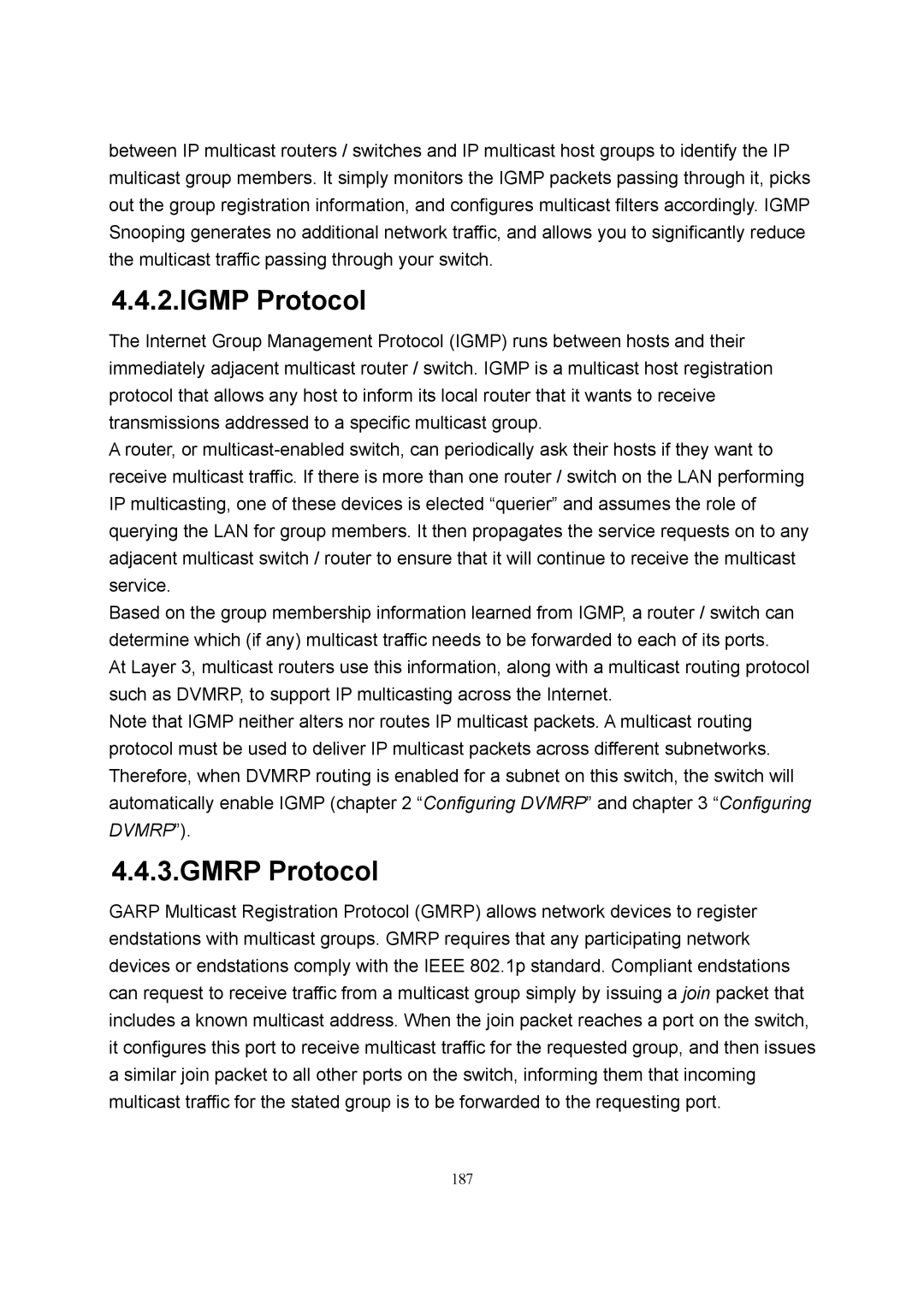between IP multicast routers / switches and IP multicast host groups to identify the IP multicast group members. It simply monitors the IGMP packets passing through it, picks out the group registration information, and configures multicast filters accordingly. IGMP Snooping generates no additional network traffic, and allows you to significantly reduce the multicast traffic passing through your switch.
4.4.2.IGMP Protocol
The Internet Group Management Protocol (IGMP) runs between hosts and their immediately adjacent multicast router / switch. IGMP is a multicast host registration protocol that allows any host to inform its local router that it wants to receive transmissions addressed to a specific multicast group.
A router, or
Based on the group membership information learned from IGMP, a router / switch can determine which (if any) multicast traffic needs to be forwarded to each of its ports.
At Layer 3, multicast routers use this information, along with a multicast routing protocol such as DVMRP, to support IP multicasting across the Internet.
Note that IGMP neither alters nor routes IP multicast packets. A multicast routing protocol must be used to deliver IP multicast packets across different subnetworks. Therefore, when DVMRP routing is enabled for a subnet on this switch, the switch will automatically enable IGMP (chapter 2 “Configuring DVMRP” and chapter 3 “Configuring DVMRP”).
4.4.3.GMRP Protocol
GARP Multicast Registration Protocol (GMRP) allows network devices to register endstations with multicast groups. GMRP requires that any participating network devices or endstations comply with the IEEE 802.1p standard. Compliant endstations can request to receive traffic from a multicast group simply by issuing a join packet that includes a known multicast address. When the join packet reaches a port on the switch, it configures this port to receive multicast traffic for the requested group, and then issues a similar join packet to all other ports on the switch, informing them that incoming multicast traffic for the stated group is to be forwarded to the requesting port.
187
